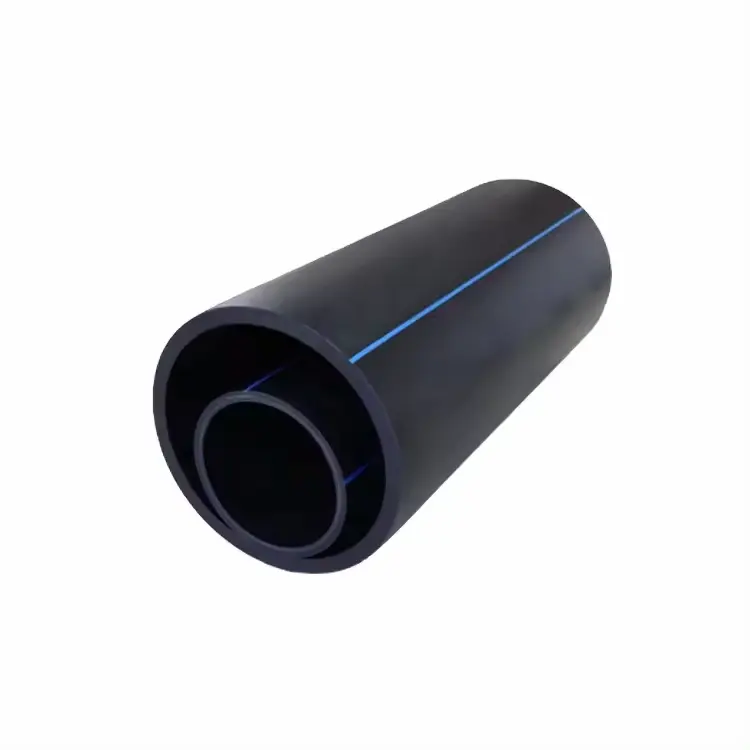ABS Pipe vs PVC Pipe
ABS pipe and PVC pipe differ significantly in various aspects, and here is a comparison of their key features:
Material and Composition:
ABS Pipe: Made of ABS (acrylonitrile-butadiene-styrene), a new type of material.
PVC Pipe: Full name is PVC-U pipe (rigid polyvinyl chloride pipe), which is formed by hot pressing after mixing polyvinyl chloride resin with stabilizers, lubricants, and other additives.
Properties and Performance:
Easy to bond, low cost, rigid texture.
Good tensile and compressive strength, excellent water tightness.
Excellent corrosion resistance, able to resist corrosion from various chemicals.
Lightweight and easy to transport and install.
Non-conductive and good sound insulation.
Has low fluid friction, reducing fluid resistance and pump horsepower.
Excellent impact resistance, high mechanical strength, and high impact toughness.
Good corrosion resistance and mechanical properties similar to metal pipes.
Can withstand a wide range of temperatures from -40°C to 80°C.
Lightweight, small resistance, and can be chrome-plated on the surface.
Application Scenarios:
Suitable for water supply systems with a temperature not exceeding 45°C.
Used in applications for drainage, wastewater, chemicals, heating fluids, cooling fluids, food, ultrapure liquids, slurries, gases, compressed air, and vacuum systems.
Widely used in the construction industry for drainage, water supply, HVAC, cable protection, and other purposes.
Used in the pharmaceutical and food industries, does not alter water quality or cause secondary pollution.
Suitable for pure water systems, petrochemical industrial piping systems, and environmental protection industries.
Price and Flexibility:
ABS Pipe is generally more expensive than PVC Pipe, but it also offers greater flexibility.
Other Considerations:
ABS Pipe is sensitive to ultraviolet light, which can cause discoloration, yellowing, and brittleness over time. It also produces a pungent odor when burned.
PVC Pipe, while resistant to chemical corrosion, has poor heat resistance and can become brittle over time with prolonged exposure to sunlight. It also produces toxic hydrogen chloride gas when burned.
ABS pipe and PVC pipe differ significantly in terms of material, properties, application scenarios, price, and flexibility. The choice of which pipe to use depends on the specific application and requirements.
Our company is a leading manufacturer of ABS pipes and PVC pipes, catering to a global clientele with a commitment to quality and innovation. Since our inception, we have been dedicated to providing the finest quality piping solutions, backed by our state-of-the-art production facilities and stringent quality control measures. With a team of experienced professionals and skilled workers, we ensure that each pipe produced meets the highest international standards of durability, reliability, and performance. Our ABS pipes are renowned for their superior strength, chemical resistance, and ease of installation, while our PVC pipes are known for their lightweight, corrosion-resistance, and cost-effectiveness. We pride ourselves on our ability to customize our products to meet the specific needs of our customers, whether it's for plumbing, drainage, or industrial applications. Our extensive network of distributors and partnerships allows us to deliver our products to any corner of the world, ensuring timely delivery and exceptional customer service. At our company, we believe in building long-term relationships with our clients based on trust and mutual benefit. We are always open to new challenges and opportunities, and strive to provide the best possible solutions for our customers' piping needs. Contact us:
WeChat/8617713607357. Email: 17713607357@163.com. Web: www.hygeosynthetics.com

897.webp)
942.webp)
237.webp)